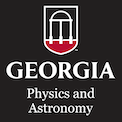The Massive Open Online Course (MOOC) movement has catalyzed discussions of digital learning on campuses around the world and highlighted the increasingly large, complex datasets related to learning. This talk will highlight the MOOC movement from the perspective of a researcher studying learner behavior, a developer of big data pipelines capable of handling billions of data points, and above all, as a physicist working in the education field. The talk will begin with a MOOC research retrospective, reviewing our understanding of the nearly 7 million unique users that have led to over 13 million enrollments across more than 300 open online courses from Harvard and MIT. From there, I will share preliminary efforts to better inform instructors how design choices impact learning outcomes. By abstracting - or coarse-graining - MOOC content into simple linear sequences of course components (videos, problems, pages), we are able to cluster sequences and analyze variance in learning outcomes. Lastly, in order to further motivate the impact of big data in education, I will highlight new projects at Harvard aiming to transform current models of teaching and learning. My hope for this talk is that listeners will better understand the current wave of digital education and the opportunities it provides for data-driven teaching and learning.
Events Calendar View
-
Departmental Colloquium
Mar 29, 2018
MOOC Research and Big Data in Education: A Physicist’s Journey in Digital Learning
-
CSP Lunch Seminar
Apr 3, 2018
Probing Interactions at the Nanometer Length Scale: Relevant Experiments and Theory, Part II
-
Departmental Colloquium
Apr 5, 2018
Visualizing Charge Carrier Dynamics in Nanowires with Pump-Probe Microscopy
A detailed understanding of the factors that govern the motion of mobile charge carriers through nanostructures is critical to many emerging nanotechnologies in electronics, optoelectronics and solar energy conversion. While the motion of charge carriers at low carrier densities is uncorrelated and easy to understand, many active electronic components operate at high carrier concentrations resulting from heavy doping or high injection. In this regime, carrier-carrier interactions and other many body effects (e.g. dopant/carrier interactions, electron screening, and electron-hole scattering) must be considered. We have combined ultrafast pump-probe spectroscopy with optical microscopy to directly image the charge carrier dynamics in individual Si nanowires (NWs) with both spatial and temporal resolution. In these experiments, an individual NW is excited by a femtosecond pump pulse that has been focused to a diffraction limited spot by a microscope objective, producing photogenerated carriers (electrons and holes) in a localized region of the structure. Motion of the photogenerated carriers is observed using a configuration in which carriers are created in one location and detected in another. In this configuration the pump beam is held fixed and the position of the probe beam is scanned by varying the angle of the probe beam as it enters the objective, resulting in a spatial map of the free carriers that provides a direct visualization of carrier diffusion.
-
Applied Physics Seminar
Apr 6, 2018
Glancing Angle Deposition for Plasmonics
-
Workshop
Apr 8, 2018
NASA Laboratory Astrophysics Workshop
NASA Laboratory Astrophysics Workshop Site
Important dates:
*** Hotel reservations: March 11, 2018. ****, some rooms still available
*** Registration deadline: March 23, 2018. *** Extended
Abstract deadline: March 23, 2018.
Student Travel Assistance:
We can provide up to $1K for 15 students to cover travel expenses. This will be on a first-come first-served basis. Contact Prof. Artemis Spyrou (spyrou@nscl.msu.edu) ASAP.
Registration Fees:
The registration fee is $125 for students and recent Ph.D. recipents (after April 1, 2016) and $250 for all others. The fee includes buffet lunch on Monday, Tuesday, and Wednesday, a reception on Sunday, and various coffee/snack breaks.
LAW 2018 is sponsored by the Astrophysics Division of NASA's Science Mission Directorate, the Joint Institute for Nuclear Astrophysics, the UGA Franklin College of Arts and Science, and the UGA Office for the Vice President for Research.
-
Awards Ceremony
Apr 12, 2018
Cummings Day Graduate Awards Ceremony
Page 79 of 121, showing 6 records out of 723 total, starting on record 469, ending on 474


